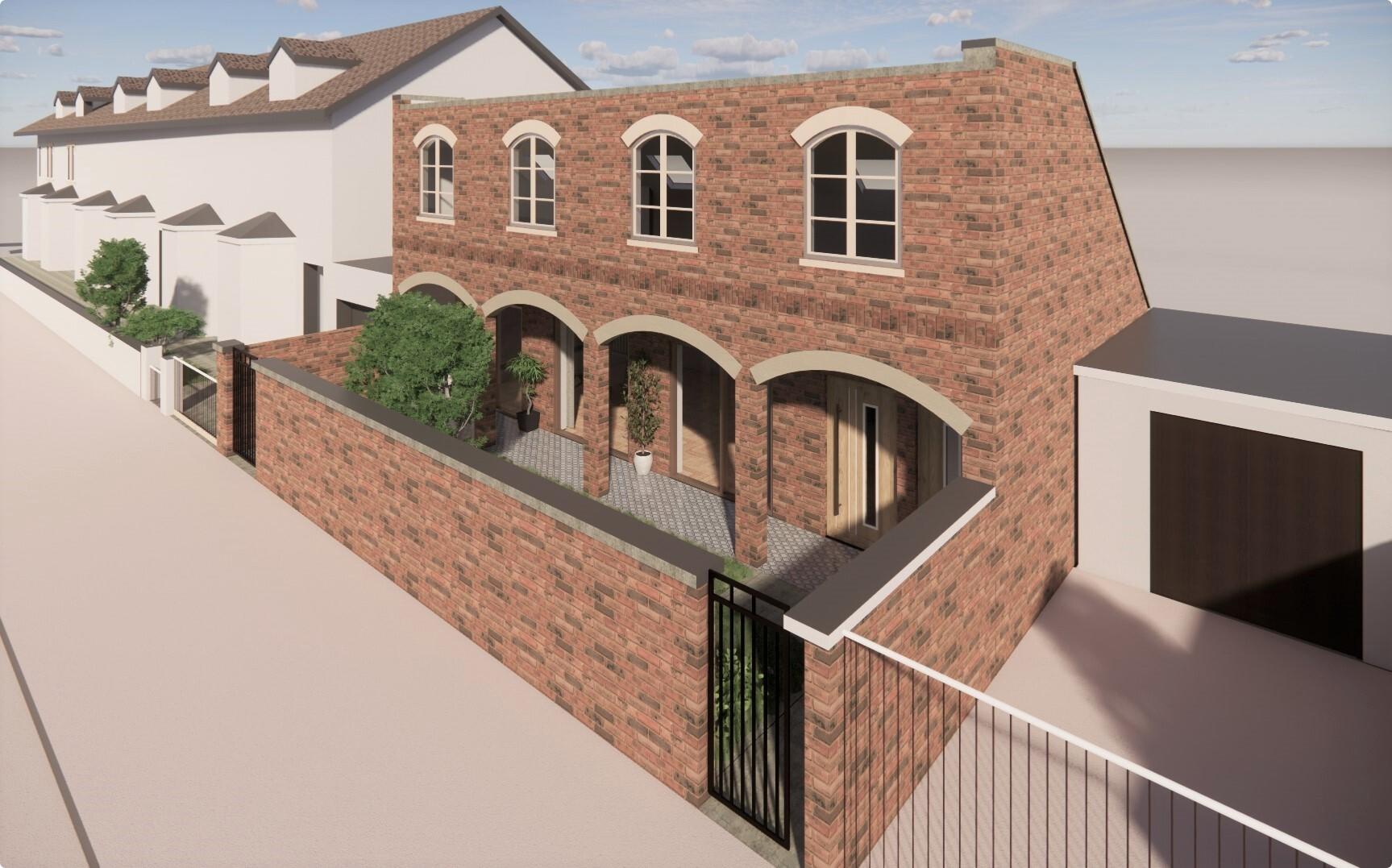Short answer: yes!
Even though London has a reputation for being tight on space, there’s no reason why you can’t still build the home of your dreams in the capital. However, like all areas, London has its pros and cons. To make sure you know what you’re dealing with, here’s our breakdown of building from scratch in London.
Finding land
First things first, you need to find yourself some land. There are a number of services that can help you explore your options, such as…
Alongside searching through official channels, it doesn’t hurt to poke around your desired area. Land can be a funny thing and sometimes people aren’t even aware that they’re sitting on a site that could be developed. If you spot a piece of land with potential or spy a derelict building going to waste, get your detective hat on and try to reach out to the owner. You never know what gem you might be able to snatch up!
Brownfield is the most likely option
There are two types of land which you can build on: greenfield and brownfield.
As the names suggest, greenfield is land without any existing development, such as a meadow that’s going spare. Brownfield is often plots of disused or derelict land, having already been built upon previously.
It is very unlikely that you’ll be able to find greenfield sites in London. Even on the outskirts of the city, where things get leafier, most of this natural landscape will be protected by the greenbelt.
Therefore, your budget should be prepared for some clean up work. This land will often need tidying up before it’s fit for construction and this can be expensive (especially if the land is contaminated from previous industrial use).
Saying this, brownfield does sometimes come with structures already in place. You might be able to play this to your advantage and use an existing structure as a foundation for your build - saving you money.
Right to Build
If you’re not in a big hurry to get started, it’s definitely worth exploring Right to Build.
In 2016, new legislation was passed that gave everyone in England the ‘right to build’. English local authorities are now required to maintain a register of people and groups in their area who want to have a role in an owner-commissioned home, and this includes self-builders.
Councils must ensure they have sufficient ‘shovel-ready’ plots to meet this demand, and providing space within three years of sign-up. You can either sign up as an individual or as a group.
Get started by registering here.
Assessing your land
Before you hand over any money, you’ll need to assess whether your land is fit for purpose. This is where a chartered surveyor comes in. They’ll be able to visit your plot and map out any potential barriers or issues you might face during construction.
They’ll typically be on the lookout for…
- Flood risks
- Pollution
- Trees
- Soil quality
- Existing structures
- Nearby power lines
- Plus much more
Alongside any physical challenges you might encounter, a land surveyor will also consider any legal hurdles too. They’ll define the boundaries of your plot, enabling you to properly understand where you can build and whether any neighbouring owners might be affected. Without a proper survey, you might end up encroaching on these boundaries and facing a nasty legal dispute.

Pre-applications are your friend
When it comes to big developments, such as new builds, it’s always a good idea to get help from the start. This is where pre-applications come in.
Rather than pay an architect to design a property that may or may not get approval first-time round, you can save yourself both time and money by opting for a pre-application first.
A pre-application involves having an informal meeting with your planning officer, either in person, on the phone, or by email. It’s a chance to discuss the feasibility of your ideas, alongside any problems you might be faced with.
You or your architect can even discuss potential ideas on plots you haven’t yet purchased. This helps eliminate the risk of being stuck with land you’re unable to develop.
Learn more about pre-applications.
Financing your build
When it comes to funding your project, there are a couple of options out there. You might opt for…
- Cash
- Selling your existing home
- Remortgaging your existing home
- Self-build mortgage
While self-build mortgages sound like they’re perfect for the job, they’re not always the best options. As always, the best way to work out budget and financing is to talk to a specialist broker who will be able to properly assess your needs and help you explore the market.
Luckily, with Resi Finance you can get the best of both worlds - expertise in new builds AND finance. Book a FREE consultation here.
Ready to build? Here’s what’s next…
You’ve got your land, you’ve got the funds, so what’s next? Whether you’re building in London or elsewhere in the UK, the best thing you can do next is to find a good architect.
Unless you’re a seasoned self-builder or a first-timer, having an experienced architect by your side is going to make your life 100% easier. They’ll not only help you design a great property, but a good architect will also be able to walk you through all the regulation hoops needed to start construction.
At Resi, we have a dedicated new builds team that covers…
- Surveys
- Architectural design
- Site appraisal
- Feasibility studies
- Pre-planning application
- Planning support
- Finance
- Building regulations
- Project management
- Interior design
- Plus, introductions to vetted local contractors
And, with our tailored packages, you pay only for what you need - giving you total control throughout.
Learn more about our new builds service.




















